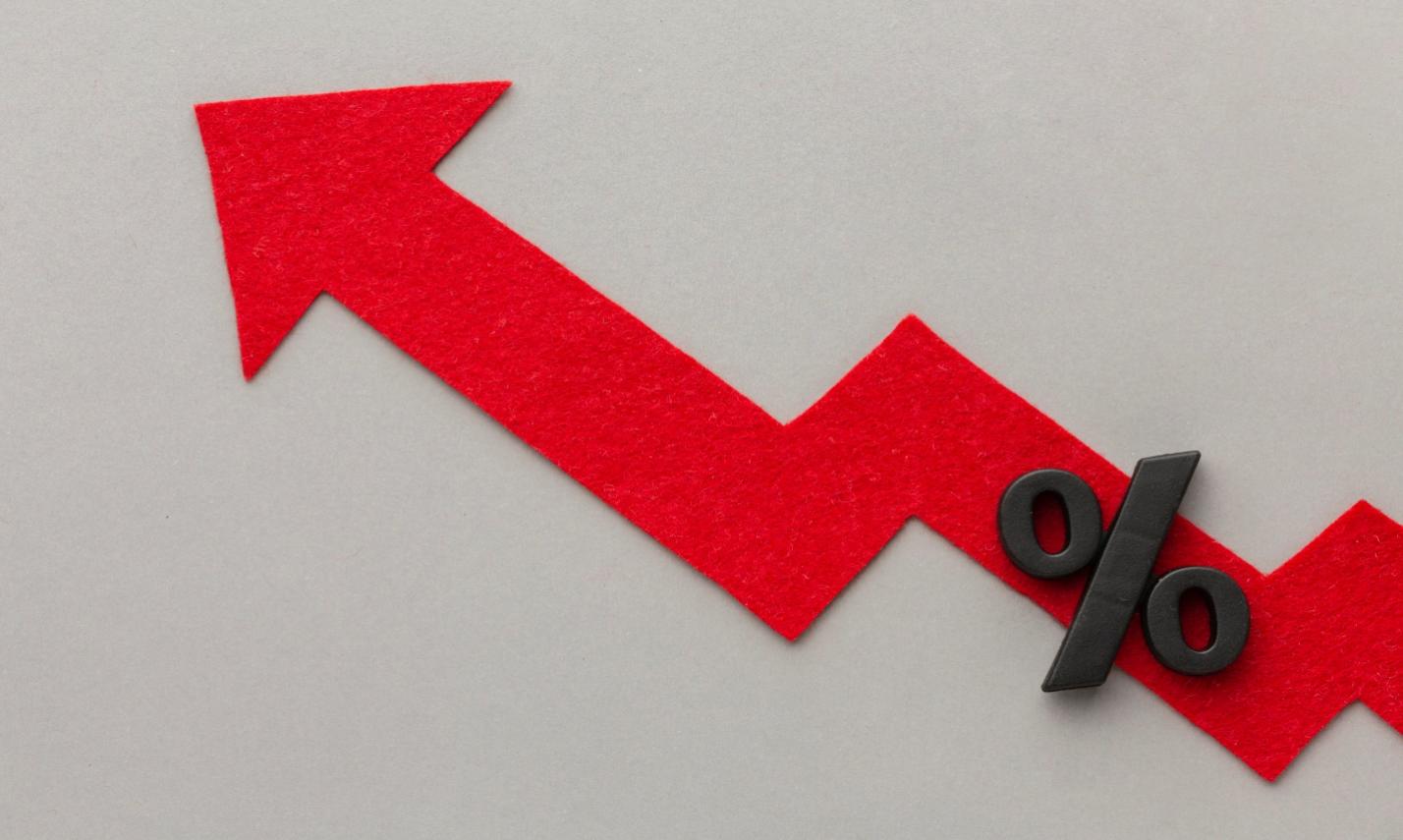The Positive And Negative Effects Of Inflation: What To Know
Susan Kelly
Nov 27, 2023
Inflation is like that uninvited guest who overstays their welcome. It affects everything from the price of your morning coffee to the cost of a new pair of shoes. In this article, we'll delve into the dual nature of inflation, breaking down its positive and negative impacts on our daily lives. But first, let's demystify how inflation is measured and why it matters.
How does Inflation Impact Daily Life, and How is it Measured?
Inflation is essentially the rise in the general level of prices over time, leading to a decrease in purchasing power. It's like a silent force that erodes the value of your hard-earned money. The Consumer Price Index (CPI) is the predominant method for gauging inflation, monitoring the average fluctuation in prices that consumers pay for goods and services.
Understanding how inflation works is crucial because it directly affects your wallet. When prices go up, your money doesn't stretch as far. It's like playing a game of catch-up where your income struggles to keep pace with rising costs.
The Negative Effect of Inflation
Inflation's adverse impacts extend beyond rising prices, affecting purchasing power and economic stability. Here's a closer look at the significant problems associated with inflation:
Diminished Purchasing Power
Inflation hits your purchasing power right at its core. Your hard-earned money loses its value swiftly, creating a challenge in affording the familiar goods and services you once could. As prices soar, the ability of your money to stretch diminishes, placing an added burden on your budget and financial flexibility.
Fixed Income Squeeze
Inflation poses a significant challenge for retirees or individuals on fixed incomes. The harsh reality unfolds as pension payments or fixed salaries gradually lose their purchasing power over time, potentially resulting in a diminishing standard of living.
This underscores the critical impact of inflation on those relying on consistent income sources, making financial planning and resilience crucial in navigating the evolving economic landscape.
Uncertainty and Economic Stress
Swift inflation induces economic uncertainty, amplifying stress for both businesses and individuals. The unpredictability of prices complicates future planning, adding a layer of challenge. In such an environment, businesses grapple with decision-making, and individuals find it daunting to chart a stable financial course.
Economic stability becomes elusive when inflation accelerates, disrupting the equilibrium of financial landscapes for both enterprises and personal financial endeavors.
Interest Rate Hikes

To combat inflationary pressures, central banks might opt to raise interest rates. While this strategy aids in managing escalating prices, it concurrently translates to elevated borrowing expenses for both individuals and businesses.
This, in turn, has the potential to exert a dampening effect on overall economic growth, creating a delicate balancing act for policymakers as they navigate the intricacies of monetary policy.
Distorted Investment Decisions
Inflation has the power to influence investment choices, steering individuals towards assets perceived as safeguarding against inflation rather than those offering optimal long-term prospects.
This tendency reflects the impact of rising prices on investor behavior, emphasizing the prioritization of assets that act as hedges in the face of inflationary pressures, potentially diverting attention from investments with superior long-range potential.
The Positive Effect of Inflation
While inflation is often viewed negatively, it can also yield positive outcomes, fostering economic dynamics and financial opportunities. Explore ways in which inflation can bring about favorable results:
Debt Relief
Inflation operates as a subtle ally, especially advantageous for individuals burdened by debt. As the value of currency diminishes, the actual weight of debt decreases, providing significant relief for borrowers. This phenomenon effectively lightens the financial load, offering a silver lining for those navigating the challenges of indebtedness.
Encouragement for Spending and Investment
A moderate level of inflation catalyzes increased spending and investment. Anticipating rising prices, individuals become inclined to make purchases and channel their funds into assets positioned to outpace the inflationary trend.
This positive economic phenomenon not only stimulates consumer activity but also fuels the growth of investment portfolios, creating a dynamic environment where financial decisions are guided by the expectation of a gradually rising price landscape.
Boost to Exporters
Inflation serves as a boon for a nation's export industry by enhancing the competitiveness of its goods and services on the global stage. This positive development is especially advantageous for exporters, as it means that international buyers perceive their products as more affordable, potentially increasing demand and bolstering the country's economic position in the global market.
Adjustment of Wages and Incomes
As inflation takes hold, there's a ripple effect on wages and incomes. Rising prices prompt employers to make necessary adjustments, increasing wages to safeguard the standard of living for their workforce. It becomes a delicate dance, ensuring that the financial well-being of employees remains resilient amid the ever-shifting economic landscape.
Stimulus for Economic Growth

Moderate inflation catalyzes economic growth by motivating businesses to expand and invest. This impetus contributes significantly to the overarching development of the economy. The slight increase in prices encourages a positive cycle, fostering entrepreneurship and innovation, ultimately fostering a robust economic landscape.
The Complex Nature of Inflation: Navigating Economic Dynamics
Policy Dilemmas - Policymakers face the challenge of balancing inflation and economic growth. Striking the right balance requires delicate adjustments to monetary and fiscal policies.
Global Interconnectedness - Inflation is not confined to national borders. Global economic trends and trade relationships play a significant role in shaping inflationary pressures.
Inflation Expectations - Public perception of future inflation can influence current economic behavior. Understanding and managing these expectations become crucial for policymakers.
Sectoral Variations - Inflation doesn't affect all sectors equally. Some industries may experience higher inflation rates than others, leading to disparities in economic performance.
Technological Advancements - In the digital age, technological innovations can both contribute to and alleviate inflationary pressures. Understanding these dynamics is key to adapting to a rapidly changing economic landscape.
Conclusion
Inflation is a double-edged sword, cutting both ways in our economic landscape. It's not just about rising prices but a complex interplay of factors that affect our daily lives. Understanding the positive and negative effects of inflation is crucial for navigating the economic terrain.
So, the next time inflation knocks on your door, you'll be armed with knowledge, ready to adapt to its ever-changing tune.







